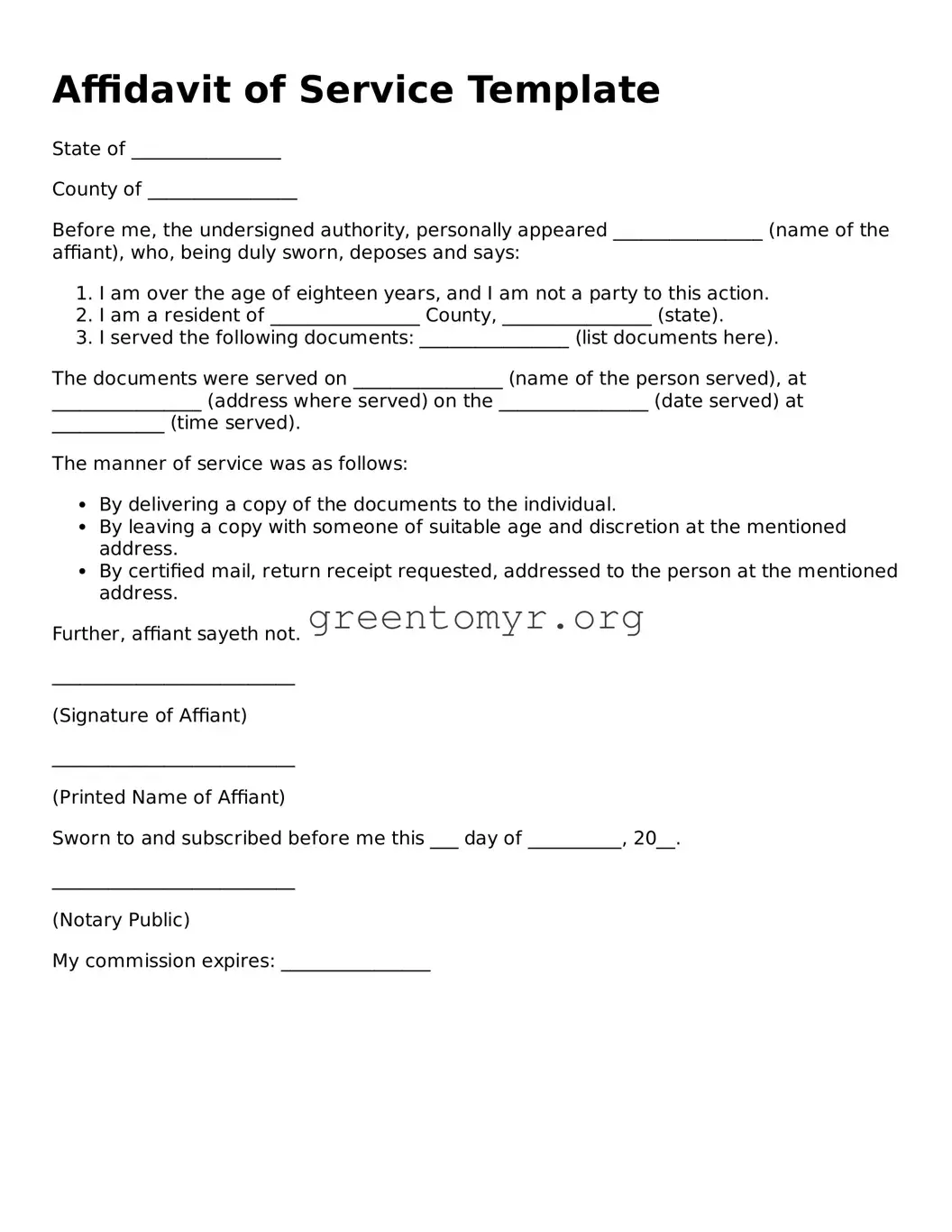Affidavit of Service Template
State of ________________
County of ________________
Before me, the undersigned authority, personally appeared ________________ (name of the affiant), who, being duly sworn, deposes and says:
- I am over the age of eighteen years, and I am not a party to this action.
- I am a resident of ________________ County, ________________ (state).
- I served the following documents: ________________ (list documents here).
The documents were served on ________________ (name of the person served), at ________________ (address where served) on the ________________ (date served) at ____________ (time served).
The manner of service was as follows:
- By delivering a copy of the documents to the individual.
- By leaving a copy with someone of suitable age and discretion at the mentioned address.
- By certified mail, return receipt requested, addressed to the person at the mentioned address.
Further, affiant sayeth not.
__________________________
(Signature of Affiant)
__________________________
(Printed Name of Affiant)
Sworn to and subscribed before me this ___ day of __________, 20__.
__________________________
(Notary Public)
My commission expires: ________________
